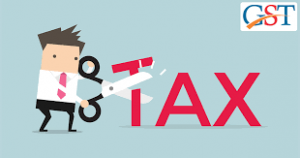How to stop worrying about tax – a guide for Australian small businesses
Are you a small business owner in Australia feeling overwhelmed by tax worries? Look no further! Our comprehensive guide provides practical tips and strategies to help you stop worrying about tax and focus on growing your business.
As a small business ownL4QKzQ&S%2SaupS%jEP%IhPu er in Australia, one of the things that can keep you up at night is managing your taxes. While it may seem daunting at first, with a little bit of understanding and organization, you can relieve some of that worry. In this article, we’ll guide you through the basics of Australian small business taxes, help you organise your finances, explain the benefits of working with a tax professional, and show you how to plan for tax payments to improve your cash flow.
Understanding the basics of Australian small business taxes
Before we dive into the details, it’s important to understand the basics of how taxes work for small businesses in Australia. Small businesses are the backbone of the Australian economy, and understanding how taxes work is crucial for their success.
Types of taxes for small businesses
Small businesses in Australia are required to pay several taxes, including:
GST (Goods and Services Tax)
– a tax on most goods and services sold or consumed in Australia. The current GST rate is 10%, and businesses with an annual turnover of $75,000 or more are required to register for GST.
Income tax
– a tax on the profits your business earns. The current company tax rate is 30%, and sole traders and partnerships are taxed at the individual income tax rates.
Payroll tax
– a tax on wages paid to employees (depending on the state or territory). The payroll tax rate varies between states and territories, and businesses with an annual payroll above the threshold are required to register for payroll tax.
It’s important to note that if your business is structured as a sole trader or partnership, your business income is included in your personal income tax return. If your business is structured as a company, it will need to file its own tax return with the Australian Taxation Office (ATO).
Tax deductions and credits for small businesses
One of the benefits of running a small business in Australia is the ability to claim tax deductions and credits. Tax deductions and credits can help reduce your taxable income, which can result in a lower tax bill. Some common deductions and credits for small businesses include:
Office expenses
such as rent, utilities, and supplies. These expenses can be claimed as a deduction if they are necessary for your business.
Vehicle expenses
such as fuel and maintenance. If you use your personal vehicle for business purposes, you may be able to claim a deduction for the expenses.
Employee expenses
such as salaries and superannuation payments. These expenses are deductible if they are related to your business.
Depreciation of assets
such as computers and equipment. You can claim a deduction for the decline in value of these assets over time.
Research and development expenses
can also be claimed as a tax credit for eligible businesses.
It’s important to keep accurate records of your business expenses and consult with a tax professional to ensure you are claiming all eligible deductions and credits.

How to stop worrying about tax- Organising your finances and record-keeping
One of the best ways to ensure a stress-free tax season is to keep organised financial records throughout the year. Here are a few tips for organising your finances and record-keeping:
Choosing the right accounting software
Investing in the right accounting software can help you keep track of your finances and make tax preparation easier. Some popular accounting software options for small businesses in Australia include Xero, MYOB, and QuickBooks.
When choosing accounting software, consider the features that are most important to your business. For example, if you have employees, you may need software with payroll capabilities. If you sell products, you may need software with inventory management features.
It’s also important to choose software that is user-friendly and easy to navigate. Look for software with a clear dashboard and intuitive interface.

Separating personal and business finances
It’s important to keep your personal and business finances separate to avoid confusion and ensure accurate record-keeping. Open a separate bank account for your business and use it exclusively for business transactions.
When you mix personal and business finances, it can be difficult to keep track of which expenses are business-related and which are personal. This can lead to mistakes on your tax return and potential audits from the Australian Taxation Office.
Separating your finances also makes it easier to track your business’s profitability and cash flow. You’ll be able to see exactly how much money your business is making and where it’s going.
Keeping track of receipts and expenses
Keep a record of all your business expenses and store receipts in a safe place. Consider using a cloud-based storage system or a physical filing system to keep track of your records.
When you keep track of your expenses, you’ll be able to claim deductions on your tax return and reduce your taxable income. This can save you money on your tax bill.
Make sure to keep receipts for all your business-related expenses, including travel expenses, office supplies, and equipment purchases. You’ll need these receipts to prove your deductions if the Australian Taxation Office audits your business.
By following these tips for organising your finances and record-keeping, you’ll be able to streamline your tax preparation process and avoid any potential headaches during tax season.
How to stop worrying about tax – Working with a tax professional
While it may be tempting to handle your taxes on your own, working with a professional can help you avoid costly mistakes and ensure you’re maximizing your deductions and credits. Here are a few things to consider when working with a tax professional:
When to hire a tax accountant
If your business is growing, you have complex tax needs, or you simply don’t have the time to manage your taxes, it may be time to hire a tax accountant.
It can be overwhelming to manage your taxes on your own, especially if you are running a business. As your business grows, so do your tax needs. A tax accountant can help you navigate the complex tax system and ensure that you are meeting all of your obligations. They can also help you identify deductions and credits that you may have missed, ultimately saving you money in the long run.

Finding the right tax professional for your business
When looking for a tax professional, make sure to do your research and choose one who has experience working with small businesses. Check their qualifications and ask for referrals from other small business owners.
Choosing the right tax professional is important. You want to make sure that they have experience working with businesses similar to yours. Look for a tax professional who has a solid reputation and is well-respected in the industry. Don’t be afraid to ask for referrals from other small business owners, as they can provide valuable insight into their experience working with a particular tax professional.
Maximizing your relationship with your tax accountant
Stay in regular communication with your tax accountant throughout the year to ensure accurate record-keeping and maximize your deductions and credits.
Communication is key when working with a tax accountant. Make sure to provide them with all of the necessary documentation and information in a timely manner. This will help ensure that your taxes are filed accurately and on time. Additionally, staying in communication with your tax accountant throughout the year can help you identify potential deductions and credits that you may have missed.
Overall, working with a tax professional can help alleviate the stress and confusion that often comes with managing your taxes. By hiring a tax accountant with experience working with small businesses, you can rest assured that your taxes are being handled properly and that you are maximizing your deductions and credits.
How to stop worrying about tax – Managing cash flow and planning for tax payments
Managing your cash flow and planning for tax payments can help relieve some of the stress of tax season. Here are a few tips for managing cash flow and planning for tax payments:
Estimating your tax liability
Estimate your tax liability for the year and set aside money each month to cover your tax payments. This will help you avoid a large tax bill at the end of the year.
Setting aside money for taxes and using Profit First method.
Set up a separate savings account to set aside money for your tax payments each month. This will help you stay on track and avoid dipping into your business funds for tax payments.
Check out our other pages about Profit First here.
Strategies for improving cash flow
Consider implementing strategies to improve your cash flow, such as offering discounts for early payments or exploring funding options like invoice financing.

Wrapping up
By understanding the basics of Australian small business taxes, organising your finances and record-keeping, working with a tax professional, and planning for tax payments, you can stop worrying about tax and focus on growing your business. Remember to stay up to date on key tax dates and deadlines and maximize your deductions and credits to keep your tax bill as low as possible. With a little bit of knowledge and organization, tax season doesn’t have to be a source of stress for your small business.